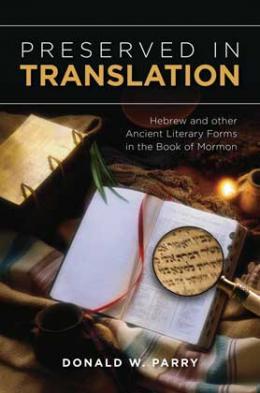Emphatic First-Person Pronouns
Donald W. Perry, “Emphatic First-Person Pronouns,” in Preserved in Translation: Hebrew and Other Ancient Literary Forms in the Book of Mormon (Provo, UT: Religious Studies Center, Brigham Young University; Salt Lake City: Deseret Book), 123‒24.
"I, even I, whom ye call your king" (Mosiah 2:26)
The use of emphatic pronouns—those that are repeated for emphasis—is a characteristic of Biblical Hebrew.[1] For example, in Isaiah 43:11 the Lord repeats the pronoun I to emphasize his godhood: “I, even I, am the Lord; and beside me there is no saviour.” Elijah uses the same form when explaining his flight into the wilderness to the Lord: “I, even I only, am left; and they seek my life, to take it away” (1 Kings 19:10). Other biblical examples are located in Deuteronomy 32:39; Isaiah 43:11, 25; 48:15; 51:12; and Hosea 5:14.
Sometimes the emphatic pronoun is a grammatical object instead of the subject, as with these additional examples from the Old Testament: “When Esau heard the words of his father, he cried . . . , Bless me, even me also, O my father” (Genesis 27:34). Nathan the prophet said to King David, “But me, even me thy servant, . . . hath he not called” (1 Kings 1:26).
In the Book of Mormon the emphatic pronoun is used in the record of Zeniff: “I, even I, in my old age, did go up to battle against the Lamanites” (Mosiah 10:10). King Benjamin said, “And I, even I, whom ye call your king” (Mosiah 2:26). Nephi prophesied that in the last days there would be “churches which are built up, and not unto the Lord, when the one shall say unto the other: Behold, I, I am the Lord’s; and the others shall say: I, I am the Lord’s” (2 Nephi 28:3).
Although this simple pronoun repetition is not in itself strongly indicative of Hebrew influence, its characteristic presence in the Hebrew Bible and identical use in the Book of Mormon are nonetheless of value in investigating the ancient literary background of the Book of Mormon.
Notes
[1] See Ewald, Syntax of the Hebrew Language, 162–63; and Gesenius, Gesenius’ Hebrew Grammar, 438–39.
